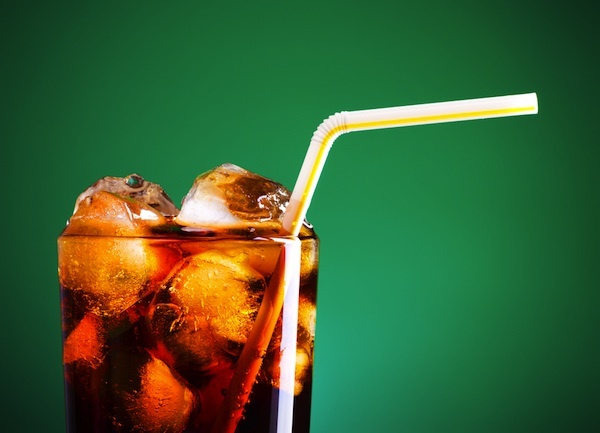Diet or Regular? Choice of Alcohol Mixer Affects Intoxication

Get the world’s most fascinating discoveries delivered straight to your inbox.
You are now subscribed
Your newsletter sign-up was successful
Want to add more newsletters?

Delivered Daily
Daily Newsletter
Sign up for the latest discoveries, groundbreaking research and fascinating breakthroughs that impact you and the wider world direct to your inbox.

Once a week
Life's Little Mysteries
Feed your curiosity with an exclusive mystery every week, solved with science and delivered direct to your inbox before it's seen anywhere else.

Once a week
How It Works
Sign up to our free science & technology newsletter for your weekly fix of fascinating articles, quick quizzes, amazing images, and more

Delivered daily
Space.com Newsletter
Breaking space news, the latest updates on rocket launches, skywatching events and more!

Once a month
Watch This Space
Sign up to our monthly entertainment newsletter to keep up with all our coverage of the latest sci-fi and space movies, tv shows, games and books.

Once a week
Night Sky This Week
Discover this week's must-see night sky events, moon phases, and stunning astrophotos. Sign up for our skywatching newsletter and explore the universe with us!
Join the club
Get full access to premium articles, exclusive features and a growing list of member rewards.
The simple choice of whether or not to mix liquor with a diet or regular soda may affect how intoxicated you get, a new study suggests.
In the study, men and women ages 21 to 33 who drank vodka mixed with diet soda had breath alcohol concentrations that were 18 percent higher after 40 minutes compared with people who drank the same dose of vodka mixed with regular soda.
In fact, after three to four drinks, people who used diet soda as a mixer had a breath alcohol level that exceeded the legal limit for an adult operating a motor vehicle. People who used regular soda in their drink did not.
What's more, people who used diet mixers scored more poorly on a test of reaction time that people who used regular mixers, although both groups reported feeling similar levels of intoxication.
The study was small — just eight men and eight women participated — so more research is needed to confirm the findings. And although results from breath alcohol tests are usually consistent with those from tests of blood alcohol, there can sometimes be a discrepancy between the two methods, so the study should be replicated using blood alcohol tests, the researchers said.
But the findings suggest that diet mixers, although lower in calories, may have insidious effects, said study researcher Cecile Marczinski, an assistant professor of psychology at Northern Kentucky University.
People "think they're saving some calories by drinking their alcohol with a diet drink, [but] it's much more harmful to the body to have a high blood alcohol concentration," Marczinski said.
Get the world’s most fascinating discoveries delivered straight to your inbox.
During the study, the 16 participants came into the laboratory three times, and received either vodka mixed with Squirt, vodka mixed with diet Squirt, or a placebo (Squirt containing a very small dose of alcohol to mimic the appearance and smell of an alcoholic beverage.) Besides the placebo, each drink contained equal amounts of alcohol and mixer. The dose of alcohol in each individual drink was based on the participant's body weight.
Regular mixers may slow down the time it takes a person to become intoxicated from drinking, the researchers said. Alcohol is absorbed by the body when it reaches the small intestine. But the stomach may treat the sugar in regular mixers as if it were food. As a result, the alcohol doesn't reach the small intestine as quickly, Marczinski said. The artificial sweeteners in diet soda, on the other hand, may not delay stomach emptying, so the alcohol travels straight through to the small intestine, Marczinski added. An earlier study found that men who drank vodka mixed with a diet beverage had higher blood alcohol levels than men who drank vodka mixed with a regular beverage. Using an ultrasound, the researchers showed that the regular drink delayed stomach emptying, but the diet drink did not.
The new finding "helps people to make an informed decision" about the mixer they chose for their alcohol, said Emma Childs, an assistant professor in the University of Chicago's Department of Psychiatry, who has researched the effects of alcohol on physiology and behavior, and was not involved in the study.
Pass it on: Drinking alcohol mixed with diet soda may get you drunk faster than drinking alcohol mixed with regular soda.
Follow Rachael Rettner on Twitter @RachaelRettner, or MyHealthNewsDaily @MyHealth_MHND. We're also on Facebook & Google+.

Rachael is a Live Science contributor, and was a former channel editor and senior writer for Live Science between 2010 and 2022. She has a master's degree in journalism from New York University's Science, Health and Environmental Reporting Program. She also holds a B.S. in molecular biology and an M.S. in biology from the University of California, San Diego. Her work has appeared in Scienceline, The Washington Post and Scientific American.
 Live Science Plus
Live Science Plus










